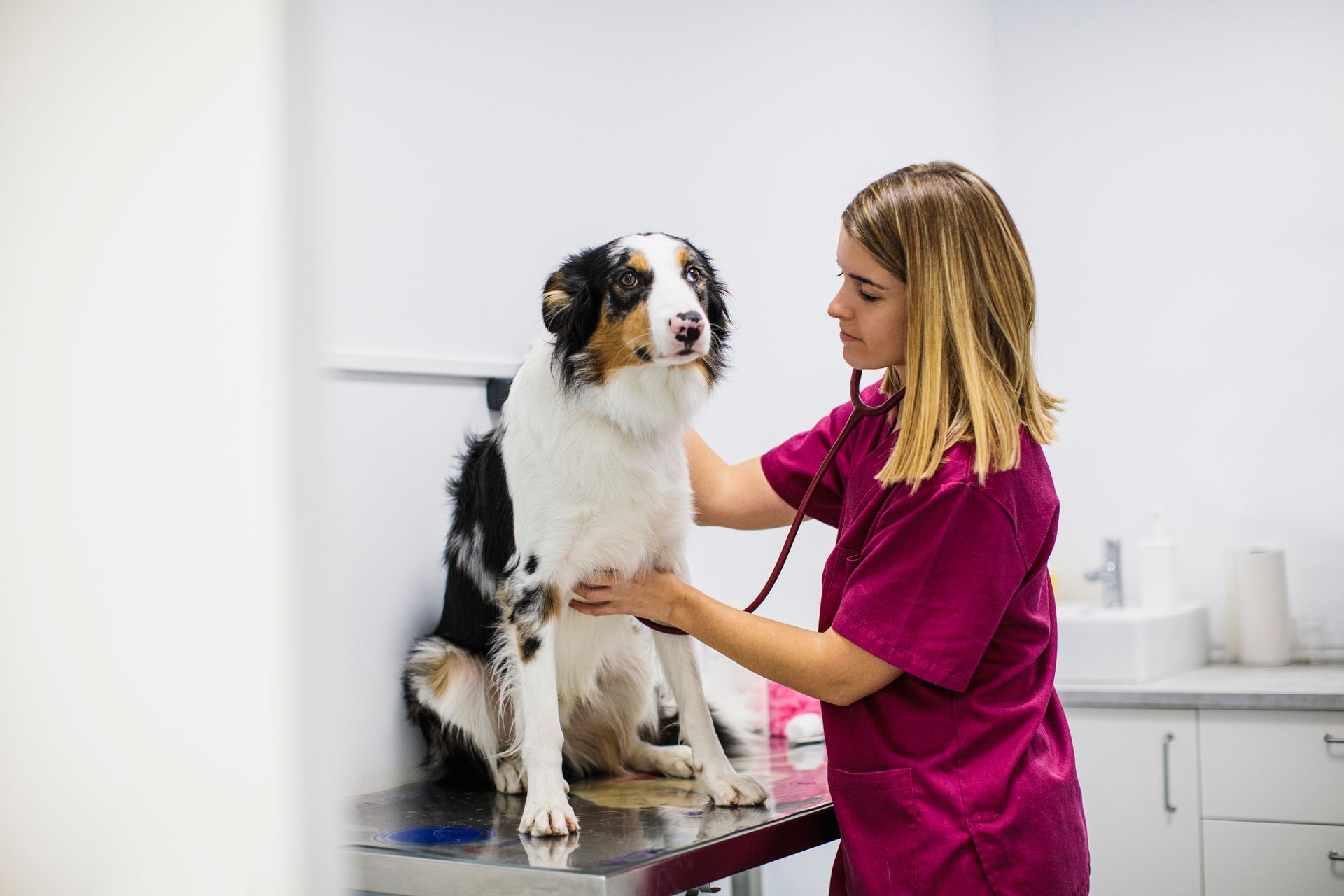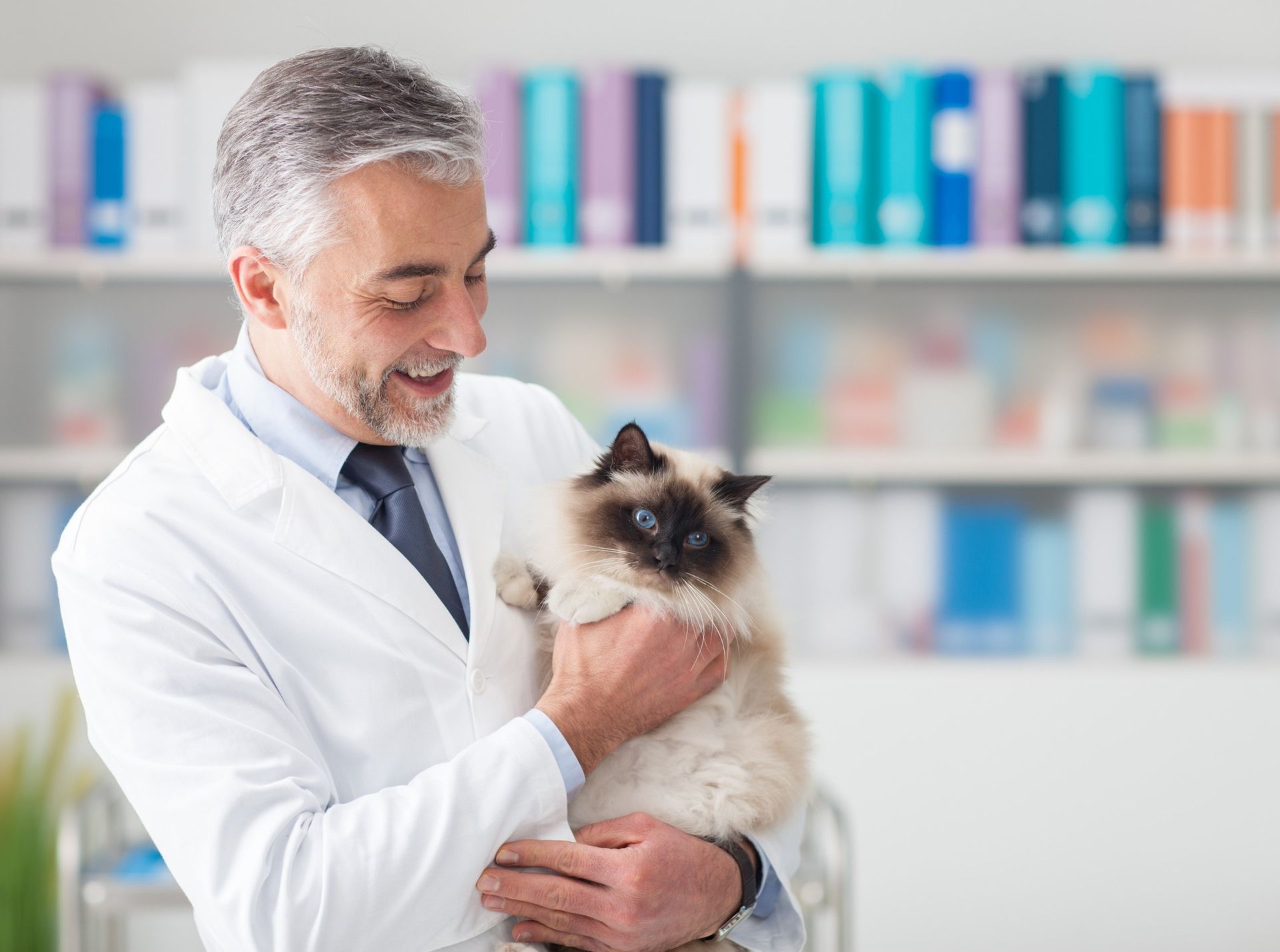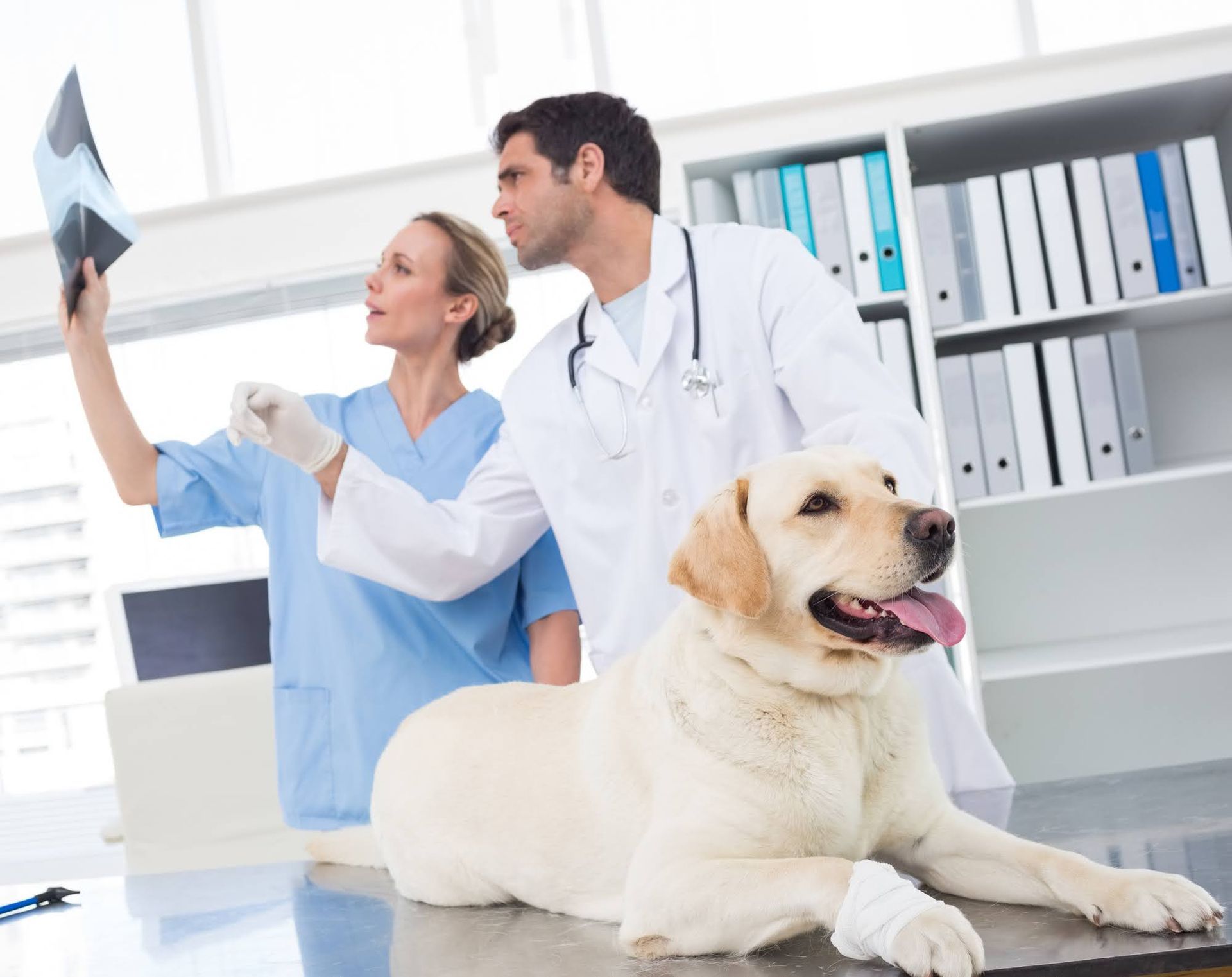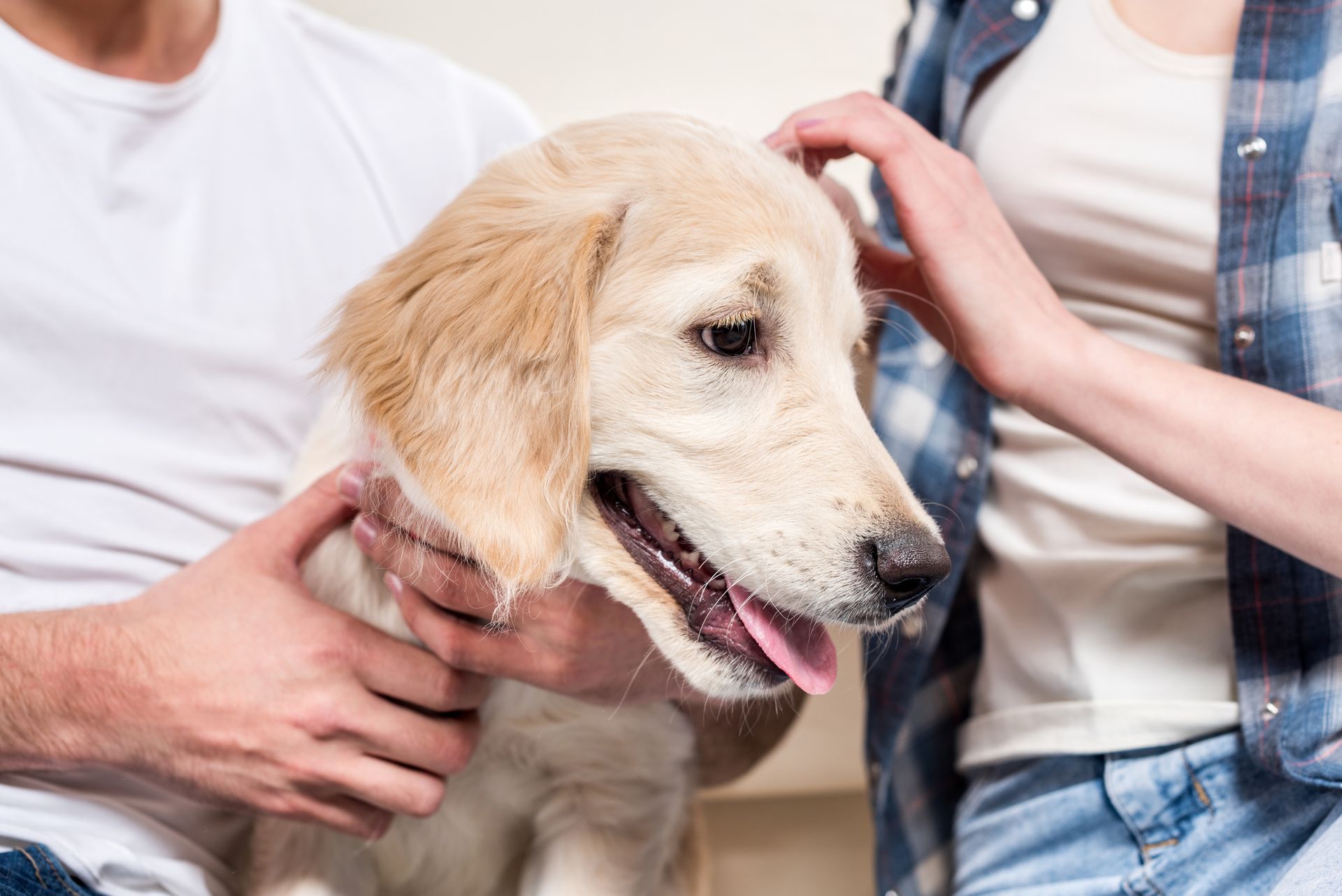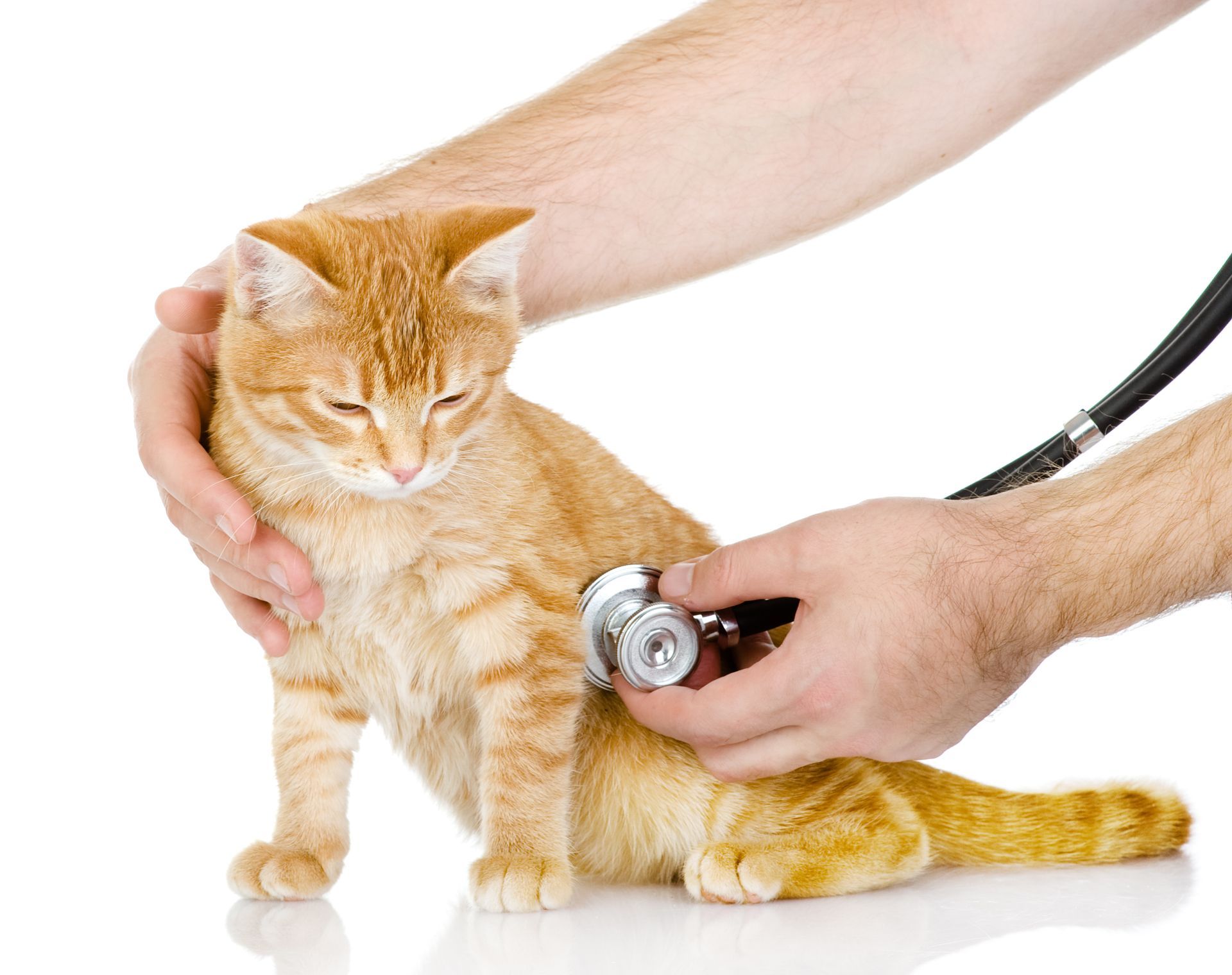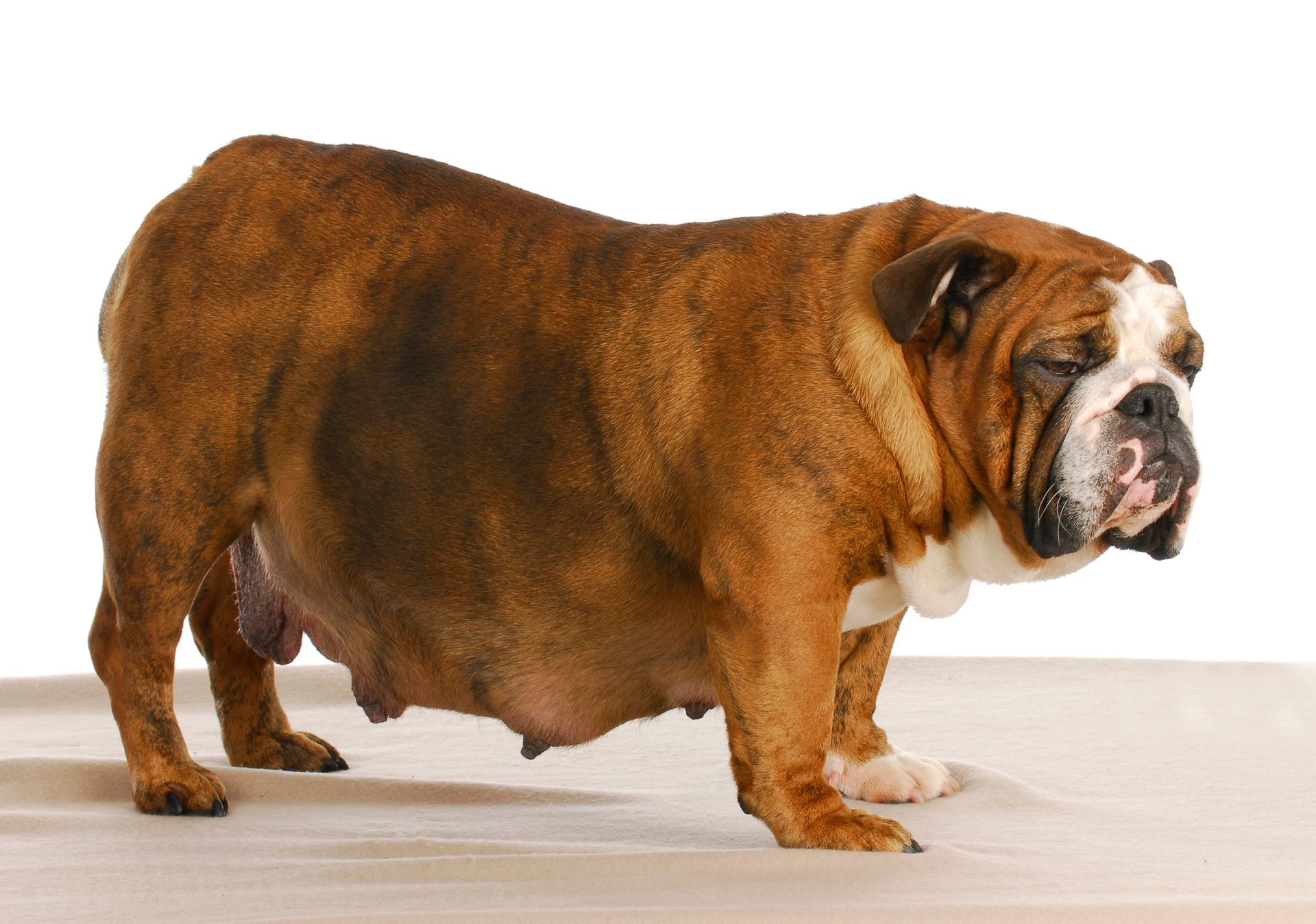Have a Large Dog? What to Know About Hip Dysplasia

Are you adopting a large dog breed, like a Saint Bernard, German shepherd, or Great Dane? If so, you need to be aware of genetic factors and illnesses your dog may be prone to. One issue you should be aware of is hip dysplasia.
In ideal anatomy, the ball-and-socket hip joint should slide smoothly during movement. However, in dogs with hip dysplasia, the socket doesn't fully cover the ball portion of the thighbone, so the hip joint can become partially dislocated and grind in the socket instead of sliding smoothly. Read on to learn more about this condition and how to manage it.
Is Hip Dysplasia the Same Thing as Arthritis?
Some owners confuse hip dysplasia with arthritis, but the two conditions are not the same. Hip dysplasia is mainly a polygenic trait, meaning that it's caused by multiple genes that are passed down from a dog's parents. Arthritis on the other hand, isn't necessarily hereditary. Autoimmune disorders, injury, and joint infection can lead to arthritis.
However, the reason these conditions are sometimes confused is the the functional issue — hip dysplasia — can eventually lead to arthritis since the unstable hip joint can cause premature wear and tear on cartilage.
Besides Genetics, What Factors Lead to Hip Dysplasia?
Larger breeds can have excessive growth rate hormones; ideally, the ball (head of the femur) and pelvis socket would grow at equal rates, but excessive growth hormones can cause the femur and pelvis to grow at uneven rates.
Besides hormonal influences, a dog's exercise levels and weight can contribute to hip dysplasia. Overweight and obese dogs are carrying extra pounds, which puts more stress on a dog's joints. While exercise is good for your dog to manage their weight, ironically too much hard-impact activity can also stress the ball-and-socket joints and contribute to hip dysplasia.
How Can You Treat the Issue?
When you get your new pup, you should visit a veterinarian not only to start your dog on vaccines but to have him or her get a wellness check. During this visit, your vet will go over your dog's normal exercise levels and diet. Your vet can take x-rays of your dog's hips to determine if he or she has hip dysplasia.
If your dog has mild hip dysplasia but functions well, your vet may recommend a protocol where you just monitor your dog's condition. If you notice that your dog has lower activity levels, a swaying gait, or loss of muscle mass in the hind legs, then you'll need to take him or her to the vet for further treatment.
There are varying degrees of hip dysplasia, so the treatment for your dog will depend on the severity of the problem. For example, if your dog has mild or moderate hip dysplasia, then you may only need to adjust your dog's diet so that he or she can stave off future problems. Your vet might recommend dog foods or dog supplements with the following ingredients:
- Calcium, since it strengthens bones and prevents joint damage
- Omega-3 Fatty Acids, since they reduce inflammation
- Glucosamine, since this helps rebuild cartilage
- Iron, since this prevents anemia — a common symptom of hip dysplasia
If your dog is experiencing pain from hip dysplasia, then the vet may recommend laser therapy to lessen inflammation and reduce overactive nerve-cell signals. Your vet may recommend medications, like joint-fluid modifiers or anti-inflammatories. Dogs with severe hip dysplasia may require surgery to correct anatomy abnormalities.
Lastly, if your dog has a weight problem that is contributing to hip dysplasia, then your vet might recommend hydrotherapy. Hydrotherapy is great because the buoyancy of the water can reduce stress on your dog's joints, but he or she will still be able to exercise to lose weight and maintain a range of motion in the hips.
Reach out to us at Angel Pet Hospital for more information on how to treat hip dysplasia and other issues your new dog might face.


